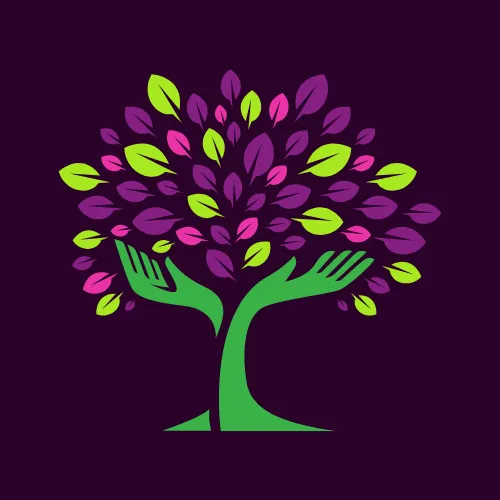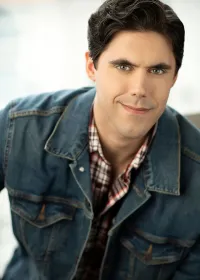Welcome To The Growth Gazette Blog!
This blog is designed especially for young adults seeking to transform past adversities into opportunities for self-improvement, clarity, growth, and personal transformation.
If you are feeling directionless, unseen, hopeless, lost, confused, isolated, alone, or unfulfilled, you've come to the right place.
Through the lens of my personal experiences—traveling to 14 countries, pursuing a career in acting, growing up with a single mother and drug addicted and alcoholic father, and overcoming the loss of a close friend—I understand the importance of facing fears and seeking personal growth. With the guidance of a life coach, I found my way to a more fulfilling, purpose-driven life.
I grew up with ADD and was labeled to have a learning disability. Always struggling with school and barely passing any of my classes. I got arrested multiple times when I was a teenager and got expelled from my school district.
But, I overcame all that. One day while in a drunk tank after being arrested for the 6th time at the age of 16, I said enough is enough.
I began to change the story that I was telling myself, diving deep into non-fiction books, taking courses, getting coached, and changing my belief system and mindset.
Now, I am here to help you do the same. At The Growth Gazette, you'll find:
Life Coaching Insights: Practical tips and strategies to empower you to take control of your life.
Overcoming Challenges: Proven methods to help you face and conquer your fears and obstacles.
Personal Growth Techniques: Tools to cultivate a growth mindset and overcome limiting beliefs and negative thoughts.
Empowering Articles: Stories and advice to inspire and motivate you on your personal development journey.
Join our community and unlock your potential. Embrace the journey of self-discovery and transformation. Let's work together to set clear goals, find your true purpose, and create a positive impact in your life and the world.
Welcome aboard! Let’s grow together.

Unlocking the Power of Rethinking: What Adam Grant Taught Me
Why We All Need to Rethink
In Think Again, Adam Grant serves up a generous helping of humility pie. He takes us on a journey through the dangers of being stuck in our beliefs and the incredible benefits of learning to rethink and unlearn. Imagine holding onto your beliefs like clutching a winning lottery ticket, only to discover the numbers are wrong. It takes courage to crumple that ticket and buy another. Grant argues that we need to do this more often—not with tickets, but with our beliefs and assumptions.
The Core Message of Think Again: Rethink, Unlearn, Grow
Adam Grant's Think Again isn't about learning more—it’s about unlearning the things that are holding you back. The premise is simple but profound: the key to growth is not in what we know, but in our willingness to rethink and question our beliefs.
Grant encourages readers to become more flexible, curious, and open-minded, qualities crucial for anyone looking to escape the limiting narratives of their past. It’s about giving yourself permission to say, “Wait a minute—maybe I don’t have this all figured out,” and seeing the beauty in that uncertainty.
Here’s a quote that will resonate deeply:
"The curse of knowledge is that it closes our minds to what we don’t know." — Adam Grant
How often have you felt like your past defines you? It’s time to challenge that belief.
The Three Archetypes: Preacher, Prosecutor, Politician
Grant starts off with a fun analogy of three mindsets we often fall into:
1. The Preacher: Defends their beliefs as if they are sacred.
2. The Prosecutor: Loves to poke holes in others' ideas but is blind to their own.
3. The Politician: Focuses on winning approval rather than being accurate.
Think of these mindsets like being stuck in a never-ending political debate on Twitter (yikes). The problem is that while these mindsets feel good (who doesn’t want to win an argument or reaffirm their beliefs?), they close us off from learning. Instead, Grant encourages us to adopt the mindset of a scientist—someone who questions, tests, and updates their thinking. Be curious, not certain.
Key Point #1: Rethinking as a Superpower
"If knowledge is power, knowing what we don’t know is wisdom."
Rethinking is essential to adapt and grow in a fast-changing world. But most people are uncomfortable with it because it involves admitting they might be wrong.
Grant says that the smartest people aren’t the ones who know the most—they’re the ones who are willing to rethink and unlearn outdated ideas. The real power comes in being open to change and uncertainty.
Actionable Step:
Next time you find yourself in a disagreement, pause and ask, “What if I’m wrong?” Even if you're sure you're right, try it out.
Imagine playing mental gymnastics where you flip your argument on its head. Maybe your opinion still holds, but maybe you’ll find a blind spot. Be like a scientist running an experiment—test your ideas rather than just defending them.
Key Point #2: The Joy of Being Wrong (Yes, Really)
"I may be wrong, but I doubt it."
We often equate being wrong with failure, but Grant flips this on its head. He argues that being wrong isn’t the end of the road—it’s actually the beginning of a better one. Mistakes are an opportunity for growth.
In fact, the best leaders (and people) don’t shy away from being wrong; they embrace it. He gives the example of Bridgewater Associates, where employees are encouraged to challenge and rethink everything—even their CEO’s decisions.
Actionable Step:
The next time you’re proven wrong, don’t shy away from it. Instead, celebrate it! Say, “I was wrong, and that’s awesome.” Why? Because every time you rethink, you’re closer to getting it right. Try to make rethinking a habit by reflecting on decisions you’ve made and asking, "What would I do differently next time?"
Key Point #3: The Power of Detached Thinking
Grant introduces the concept of task conflict vs. relationship conflict. Task conflict—disagreements about ideas—can be healthy, while relationship conflict—personal attacks—can destroy collaboration. The key is to separate your ego from your ideas. Remember, you are not your beliefs.
Actionable Step:
In your next heated conversation, try to focus on the ideas and not the people. When someone critiques your idea, they’re not critiquing you. Think of your ideas like drafts of an essay. You wouldn’t take offense if someone suggested edits to your essay, right? Start viewing your thoughts and opinions as "rough drafts" too. They can always be improved.
Key Point #4: Collective Rethinking
"We don’t have to believe everything we think or internalize everything we feel."
Grant explains that rethinking doesn’t have to be a solo journey—it’s even better in groups. Collective rethinking is the idea of creating a culture where people are encouraged to question the status quo. This doesn’t just make teams more innovative; it also makes them more resilient.
Actionable Step:
If you lead a team or even just a family discussion, create a space where everyone is free to challenge ideas—yours included. You might say something like, “I’m probably wrong about some part of this idea—can you help me find the weak spots?” This creates an environment where rethinking becomes a shared activity.
Key Point #5: Confidence Without Certainty
Many people confuse confidence with certainty, but Grant shows us that we can be confident in our ability to rethink, rather than in our initial conclusions. It’s okay to not know all the answers. In fact, confidence in the process of discovery is much more powerful than confidence in static knowledge.
Actionable Step:
Next time you’re tempted to say, “I’m sure about this,” try saying, “I’m confident that we can figure this out together.” This phrase invites collaboration and signals that you’re confident in the process, but open to different outcomes.
Key Point #6: The Scientist Mindset — Curiosity Over Conviction
Grant introduces what he calls the "Scientist Mindset." Think of it this way: scientists are curious; they form hypotheses and then test them, fully prepared to discard any idea if the data proves otherwise. Now, imagine approaching your life and your beliefs this way.
Here’s a simple metaphor: You’re an artist, but your past has handed you a set of drab, grey paints. The Scientist Mindset says, “Why don’t we try a different palette? Maybe some neon pink or electric blue?” And if it doesn’t work? No problem! Paint over it.
Actionable Step:
Challenge your assumptions: Think about one belief you hold about yourself. Maybe it’s “I’m not good enough” or “I’ll never escape my past.” Now, write it down like a scientist forming a hypothesis. Test it. Gather evidence that might challenge it—did you get a promotion at work? Do you have friends who genuinely value you? Little by little, prove your inner skeptic wrong.
Rethinking Is Like Upgrading Software
Imagine your brain is like a smartphone. Every so often, you get a notification that it’s time to update your software. If you ignore the update, your phone might still work, but it’ll be slower, glitchier, and miss out on new features. If you embrace the update, it improves. Similarly, rethinking is the update your brain needs. It makes your mind more efficient, more open, and better equipped to deal with the modern world.
Conclusion: Embrace the Rethink
Think Again is an urgent call to rethink, reframe, and update our ideas about the world. It’s not about losing confidence; it’s about gaining wisdom. The best part? The more you practice rethinking, the easier it becomes. You don’t have to have all the answers. Instead, you just need to be willing to ask better questions.
Personally, my favorite point (and there was lots) was the "think like a scientist" mindset. Not only challenging your hypothesis, but also experimenting and getting excited when you're wrong.
So, take Grant’s advice and stop clinging to outdated beliefs. You might find that rethinking leads you to a smarter, more adaptable, and happier version of yourself.
This blog post covers the key lessons from Think Again, and now it’s your turn to put them into practice! What will you rethink first?
What Are You Waiting For?
If you enjoyed this book review and want to learn more, then click here to purchase the book and dive deep into how to rethink like a scientist.

If you want more insightful book reviews and personal growth strategies, sign up for my newsletter. Let’s rethink the way we approach life, together!
Before You Go, Check Out My Newsletter!
Stay Up To Date With Actionable Tips & Advice!

